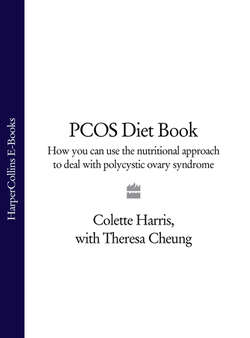Читать книгу PCOS Diet Book: How you can use the nutritional approach to deal with polycystic ovary syndrome - Theresa Cheung - Страница 68
YOUR BODY’S IN-HOUSE DETOX SYSTEM
ОглавлениеYour liver, kidneys and adrenal glands work extremely hard to keep your hormones functioning efficiently and you feeling healthy. They are crucial for the removal of potentially harmful toxins which can disrupt your hormonal systems and trigger the symptoms of PCOS.
Your liver is a chemical clearing workaholic. It cleans one-and-a-half quarts of blood every minute of the day, so that other organs can be nourished by purified blood. It also neutralizes toxic wastes, sending them off to the next detox organ, the kidneys, for elimination. The liver also removes excess hormones (such as oestrogen), thereby maintaining hormonal balance, produces enzymes and amino acids to metabolize fat, proteins and carbs, stores nutrients, makes and processes cholesterol, produces bile during the digestive process for fat metabolism, and regulates blood-sugar levels for energy.
Alcohol, drugs, fatty foods, highly refined foods, smoking, drugs, the Pill and other environmental toxins, from pesticides and exhaust fumes to hair sprays and petrol, can overload the liver. Whether you have PCOS or not, if toxins clog up the liver’s detoxification pathways, blood-sugar levels start to fluctuate, toxins start to find their way into your circulatory system and excess hormones can’t be cleared from your system, resulting in hair loss and irregular periods.
The skin, like the liver, is a major detoxifying organ, so waste materials exit through the skin’s pores and show up on your face, hair and nails, causing wrinkles, acne, blotchy skin, blemishes, bad hair days, split nails and white blotches on your nails – all clear warning signs that vital nutrients are lacking.
Your kidneys and bladder work harmoniously with your liver to eliminate waste from your system. The kidneys help your system keep the right amount of minerals, while pulling out unwanted elements like nitrogen, salts and certain chemicals. When the filtering is complete, urine flows from the kidneys to the bladder where it is eliminated.
When your liver can’t cope with too many toxins, the excess passes into your bloodstream and to your kidneys. But your kidneys are not designed to detoxify waste, as your liver does. Consequently the toxic substances move to the urinary tract where they can cause yeast infections. Your skin is also forced to do double time in the elimination process, which can cause rashes, acne and other skin conditions.
Situated on top of your kidneys, your adrenal glands are on the alert every second of the day, responding to the pressures affecting you. In order to cope, the adrenals manufacture hormones such as adrenaline and cortisol, which keep blood sugar in check so that you receive the energy you need. The more your adrenals are under siege because of physical, emotional or environmental stress, the greater likelihood of burn-out or adrenal exhaustion. When this occurs, too much cortisol is produced, which in turn can trigger testosterone production and the familiar symptoms of PCOS.
Your lymph system is also crucial to your body’s detox processes. Lymph, a liquid produced by the lymph glands in various parts of your body, absorbs dead cells, excess fluids and other waste products from foods and takes them to the lymph nodes. Here the waste is filtered and eventually fed into the blood and on to one of the eliminatory organs – skin, liver or kidneys – to be passed out via perspiration, faeces or urine.
Poor lymph drainage due to excess waste results in a build-up of fluids containing waste products. This waste can become toxic and stagnant, and eventually will make you feel bloated and tired. In addition, tissues can be damaged due to excess fluid.
